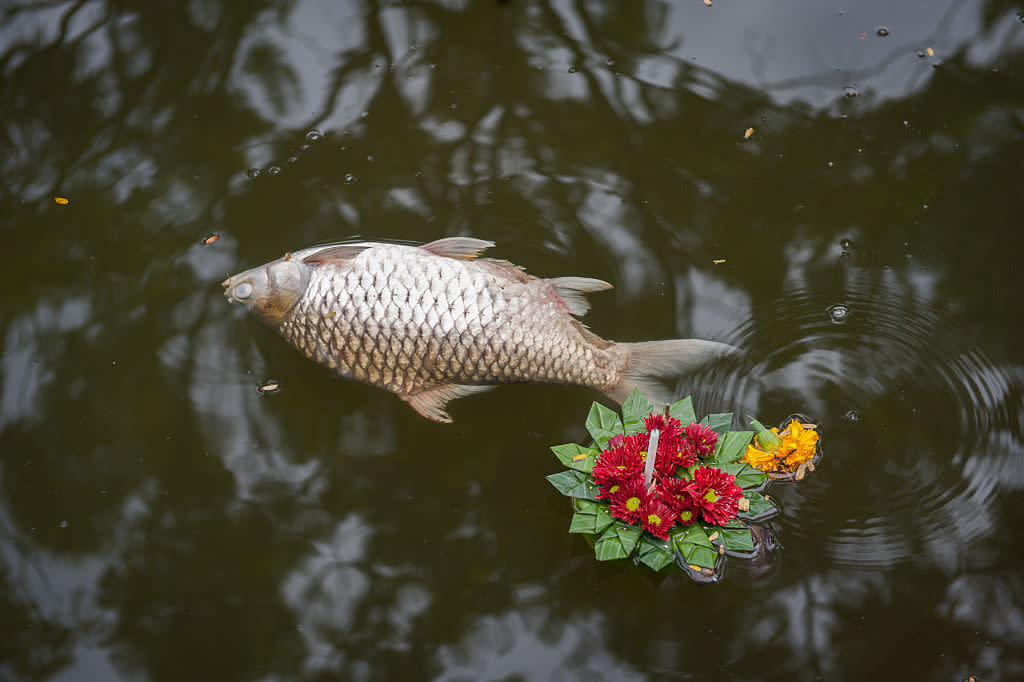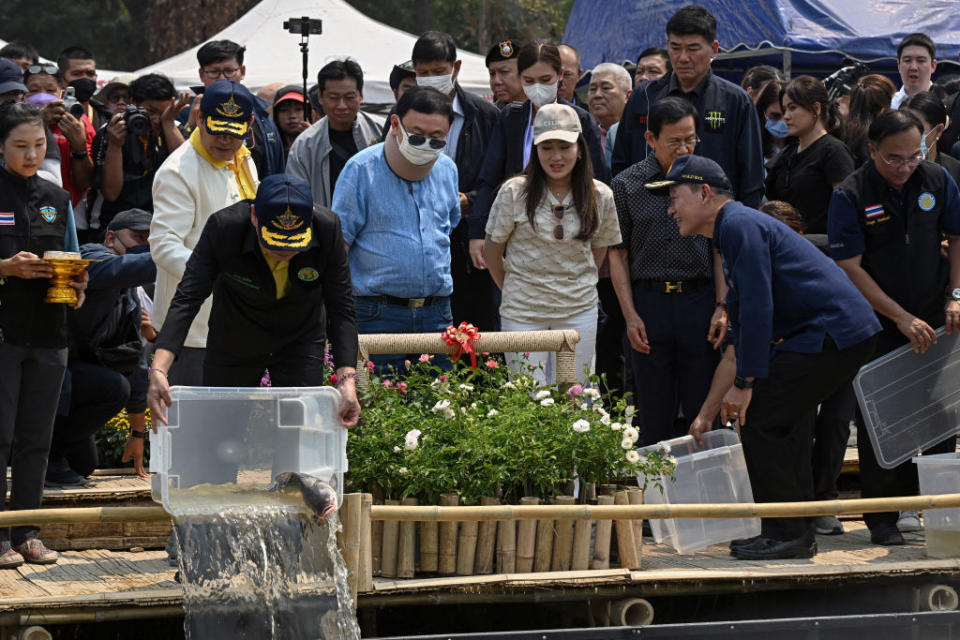Thai Officials Warn Releasing Fish Into Nature Won’t Bring Good Karma but Ecological Harm

- Oops!Something went wrong.Please try again later.
A dead fish floats in a moat a day after being released during the Loy Krathong Festival in Chiang Mai, Thailand, in 2014. Credit - Atid Kiattisaksiri—LightRocket/Getty Images
Good intentions can sometimes be misguided. Thailand’s freshwater ecosystems this time of year are a testament to that.
Ahead of the Buddhist holiday of Songkran, also known as the Thai New Year, which began on Saturday and ends on Monday, Thailand’s Department of Fisheries warned Buddhists thinking of releasing fish and turtles into local waterways—a popular practice known as “ploi pla” and believed to make merit, or bring good karma—that doing so would actually be a grave sin.
Bancha Sukkaew, the chief of the department, said people should avoid releasing alien species, including some breeds of catfish, pet fish, cichlids, turtles, and crayfish, into natural water. Some of the fish, he explained, are unable to survive in the water they’re released into; in other cases, the introduction of an alien species may disturb the ecosystem.
Many Buddhists believe that releasing animals into the wild—thereby giving them a new lease on life—earns merit that can be transferred to the afterlife, and it is common for people to release fish or birds during major holidays or events such as weddings. (Other ways of making merit, which generally involves doing good deeds, include being ordained as monks.)
Read More: Why Some People Become Monks After Committing Crimes
In a highly-watched first public appearance in March since his early release from prison on corruption charges, former Thai premier Thaksin Shinawatra released more than 30,000 fish into a lake in Chiang Mai to make merit. And last year, during a visit to Thailand that garnered widespread media attention, the Thai King’s estranged son made merit by releasing 1,000 fish into the Chao Phraya River along the pier of a famed temple.

But such acts can have tragic consequences. In 2021, when people released buckets of catfish into the same river during a Buddhist holiday, most of the fish died almost immediately, either from the impact of hitting the concrete steps leading down to the river, or from not being able to survive in the river’s water. The grisly aftermath: throngs of dead fish lining the river bank.
Some people throw turtles—and even land-dwelling tortoises—into large rivers, where they drown because they can’t swim in deep water.
Ecological experts have also noted that merit-making activities are a major source of invasive species being introduced into natural habitats in Thailand.
The demand for animals to release has given rise to shops selling bags of captured fish, turtles, and birds for aspiring merit-makers, raising questions about the ethics of the whole process.
“When you pay to release animals, you don’t perform a good deed. You do the opposite,” a monk told the South China Morning Post in 2020. “Many of these animals are taken from their environment so people can let them go. That’s not right.”
Contact us at letters@time.com.

